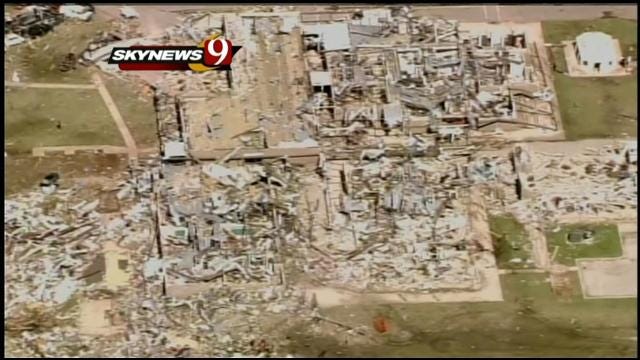Tips For Avoiding Charity Scams When Giving To Oklahoma Tornado Victims
Some are simply out to take advantage of your generous nature, and will disappear with your donation. Others mean well, but don't have the means to really get the money to where it will help.Wednesday, May 22nd 2013, 6:12 pm
Disasters like this week's deadly tornado outbreak often bring out the scam artists. Charities spring up overnight. Some are simply out to take advantage of your generous nature, and will disappear with your donation. Others mean well, but don't have the means to really get the money to where it will help.
In addition, a lot of people will be offering roofing and construction services, and some are legitimate, but some are not, so we've compiled a list of what you need to know before you give and before you hire.
Complete Coverage: May 2013 Tornado Outbreak
Beware that some phony charities use names that sound or look like those of respected, legitimate organizations, as a way to gain your trust. A simple rule is: don't give money to anybody who calls you on the phone or approaches you in person. You don't know if they're the real deal or if they're professional fundraisers, who keep a big portion of the money they collect.
Instead, find the address of the charity you want to support and send a check directly there. If you give by credit card online, make sure the site is secure and look for the closed padlock at the top of the page.
It's always best to check out the charity before you give. For that, you can go to Give.org, sponsored by the Better Business Bureau. If there's a green box, the charity meets their standards. A yellow box means the organization does not meet the standards and a red box means they didn't disclose their information.
You can also research 20 different things about each charity, including audits and fundraising practices.
It's not just charities that will pop up, but fly-by-night roofers and construction crews will be offering their services.
To be safe, get three estimates, get a written contract, and be leery of them wanting money up front. Verify them through the Oklahoma Construction Industries Board.
A new law in 2010 requires roofers to have insurance and be registered with the state. You can out check plumbers, heating and air and electrical folks, as well.
5/21/2013 Related Story: Disaster Relief Agencies: Giving Cash Is Best Way To Help Tornado Victims
The Warning Signs of a Charity Scam:
How can you tell whether someone you care about is the target of a charity scam - or whether you are yourself? The Federal Trade Commission, the nation's consumer protection agency, suggests that donors should avoid any charity or fundraiser that:
• refuses to provide written information about its identity, its mission, its costs, and how the donation will be used;
• will not provide proof that a contribution is tax deductible;
• uses a name that closely resembles that of a better-known, reputable organization;
• thanks a potential donor for a pledge the person doesn't remember making;
• asks a potential contributor for bank account or credit card information before the person has reviewed the organization's information and agreed to contribute;
• uses high-pressure tactics to secure a donation before the potential donor has had a chance to make an informed decision about giving;
• asks for donations in cash;
• offers to send a courier or overnight delivery service to collect the donation immediately.
We've partnered with the Red Cross and the Regional Food Bank of Oklahoma to help storm victims.
Text the word "TORNADO" to 32333, and a $10 donation will be charged to your cell phone bill. Money raised is designated specifically for Oklahoma City-area storm victims.
More Like This
September 29th, 2024
September 17th, 2024
Top Headlines
December 13th, 2024
December 13th, 2024
December 13th, 2024
December 13th, 2024











